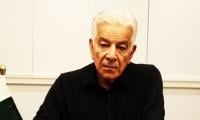Bahauddin and thus became a prominent scholar.
The fame of his piety and simple lifestyle spread to far-flung areas and many great scholars and saints of his era used to pay visits to him.
He had witnessed the regime of Sultans Sikandar Lodhi, Ibrahim Lodhi, Zaheeruddin Babar, Naseeruddin Babar and Jalaluddin Akbar. He started preaching Islam from Kannauj where he strived day and night to accomplish his noble task.
There is a town ‘Jewn’ associated with his name in the tehsil Jalalabad of district Kannauj. Tehsil Jalalabad too linked with the name of his ancestor Makhdoom Jalaluddin Jahanian Jahan Gasht while in district Kannauj, Sadaat Shah Jewna’s colonised towns - Siray-e-Miraan, Auch, Bibiyaan Jalalpur, Makhdoom Pur, Laal Pur (associated with the name of Saint Laal Bukhari) are still populated areas of the city. Siray-e-Miraan is the town where Shah Jewna used to impart religious knowledge to the students who used to come from other areas.
The miracles of Hazrat Shah Jewna were very popular in Kannauj and its suburbs. The patients were blessed with good health while troubled and anxious people used to get relief from their problems. These were ordinary miracles used to occur at his holy place and there were some big miracles too. In fact, he followed basic philosophy of the Holy Quran and Sunnah.
Once, when he was in Kannauj, the son of Raja was killed with a knife while playing with his friends. On the request of Raja, he prayed to Allah Almighty and recited some holy verses from Quran and put his hand on the place of wound. By grace of Allah, the boy opened his eyes. This marvelous miracle of Shah Jewna impressed Raja so much that he, along with thousands of other Hindus, embraced Islam.
Hazrat Shah Jewna inherited this spiritual power from his forefathers. In a book ‘Hadeeqatul Aulia’ page No 50, it is mentioned about the miracle of his grandfather Makhdoom Jalaluddin Surkh Bukhari that when in his teenage, he was playing with his friends, a funeral was brought but he stopped the people there to bury the dead body.
He pronounced Allah is great and addressing the dead body, he asked to be alive on the orders of Allah, in a few seconds, the person was alive and lived 40 years more. Likewise, it was also written in book ‘Anwaarul Aulia’ about his ancestor Makhdoom Jalaluddin Jahanian Jahan Gasht that once he went to perform Hajj, and when he staying at Jeddah for some time, a funeral of Shaikh Badaruddin Yamni was brought in a mosque.
He recited a holy verse from the Holy Quran and Sh Badaruddin opened his eyes and later, everyone present there offered their Zuhr prayer in his Imamat.
Peer Shah Jewna left Kannauj in 1558 and migrated to Pail Padhrar to preach Islam there. Pail Padhrar was an arid area without any vegetation at that time but his arrival made the deserted place populated and fertile. He impressed the people there who started embracing Islam in great numbers. He prayed for blessings of Allah for this area which was granted and a proof of Shah Jewna’s blessings also exists even today in that area.
This well is known as “Peers” well and people used the water of this to cure their physical and spiritual ailments.
From Pail Padhrar, he went to a town ‘Shah Jewna’ near Jhang which was also deserted but as soon as he reached that area, it was also filled with blessings of God.
Hazrat Shah Jewna was a simple but pious and generous saint who always remained busy in helping the mankind and teaching and preaching Islam and ways of Quran and Sunnah to the
people.
He had firm belief in the injunctions of Holy Quran and was emotionally attached to Holy Prophet (PBUH). His love for Holy Prophet (PBUH) can easily be gauged from the fact that he made Surah Muzammil the centre of his life. Due to reciting Surah Muzammil 10 million times in the ‘bela’ of Chenab River, he was also known as ‘Peer Croreia’.
Many years rather centuries have passed since his death, but even today, a large number of people not only from Jhang but also from far-flung areas still remember the services of this great saint and feel honour in paying homage to him and earn inner peace in return.
In this modern era when everyone is anxious and looking for peace, the message of Hazrat Shah Jewna is still one of piety, modesty and honesty.
Due to breakdown, power was cut off in Mall Road, Jhikagali, Bhurban, Expressway and other areas
Demonstrators criticise introduction of a token system at the Kuntani border
He says bunkers would be demolished and weapons collected to restore peace to the area
Special Judge Central Shahrukh Arjumand conducts hearing at Adiala Jail on Friday
PN flotilla was led by Commander 14th Destroyer Squadron, Commodore Muhammad Umair
ATC Special Judge Amjad Ali Shah approves her bail until January 13







